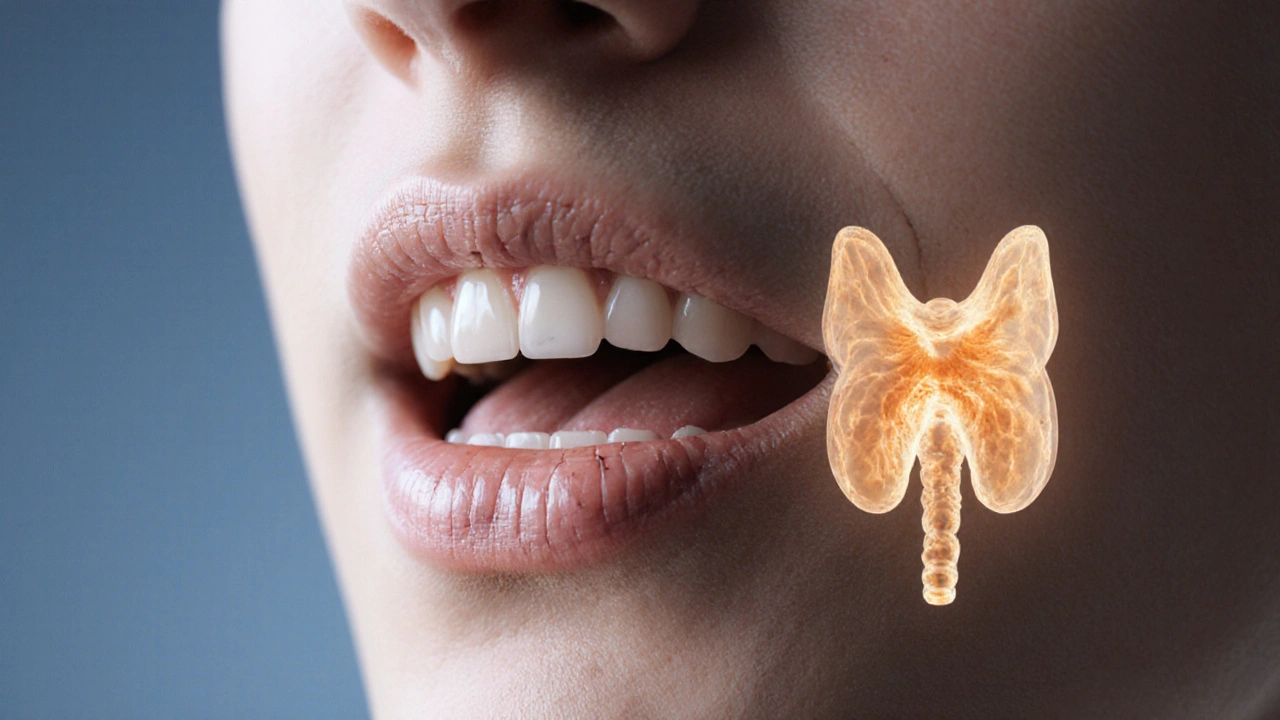Hyperthyroidism: Causes, Symptoms, and How Medications Affect It
When your hyperthyroidism, a condition where the thyroid gland produces too much thyroid hormone. Also known as overactive thyroid, it can speed up your metabolism, shake your nerves, and leave you tired even after a full night’s sleep. This isn’t just about feeling jittery—it’s a real medical issue that affects heart rate, weight, mood, and energy. If left untreated, it can lead to serious problems like bone loss, heart rhythm disorders, or even a life-threatening surge called thyroid storm.
Most cases of hyperthyroidism come from Graves’ disease, an autoimmune disorder where the immune system mistakenly attacks the thyroid. Other causes include thyroid nodules, inflammation of the gland, or taking too much thyroid medication. You might notice weight loss despite eating more, a rapid or irregular heartbeat, shaky hands, trouble sleeping, or skin that feels warm and moist. Women are more likely to develop it, especially after pregnancy or over age 60.
What you take matters. antithyroid drugs, like methimazole and propylthiouracil, work by slowing down hormone production. But these can interact with other meds—like blood thinners or diabetes pills—changing how they work. Some people turn to supplements like selenium or iodine, but too much iodine can actually make hyperthyroidism worse. Even common things like caffeine or stress can make symptoms feel worse. And if you’re on hormone replacement therapy, your thyroid levels might shift unexpectedly.
There’s no one-size-fits-all fix. Some people need pills, others get radioactive iodine, and a few end up with surgery. But what works for one person might not work for another. That’s why tracking your symptoms, knowing your meds, and understanding your body’s signals is so important. You’ll find real-world advice here—not just textbook definitions. We’ve pulled together posts that break down how thyroid meds interact with other drugs, what natural approaches might help (and which ones to avoid), and how to spot warning signs before things get serious. Whether you’re newly diagnosed or have been managing this for years, the info below gives you the practical, no-fluff details you need to take control.
Learn how hyperthyroidism affects your mouth and get practical dental care tips, nutrition advice, and medication guidance to keep your smile healthy.
Oct, 12 2025

